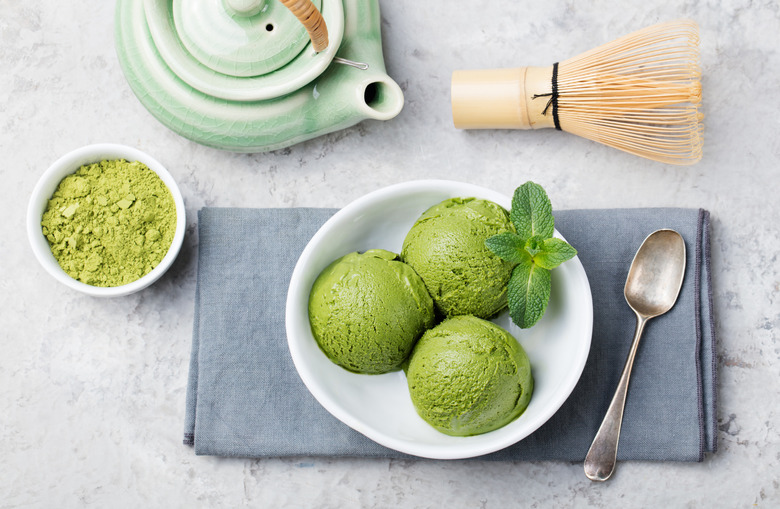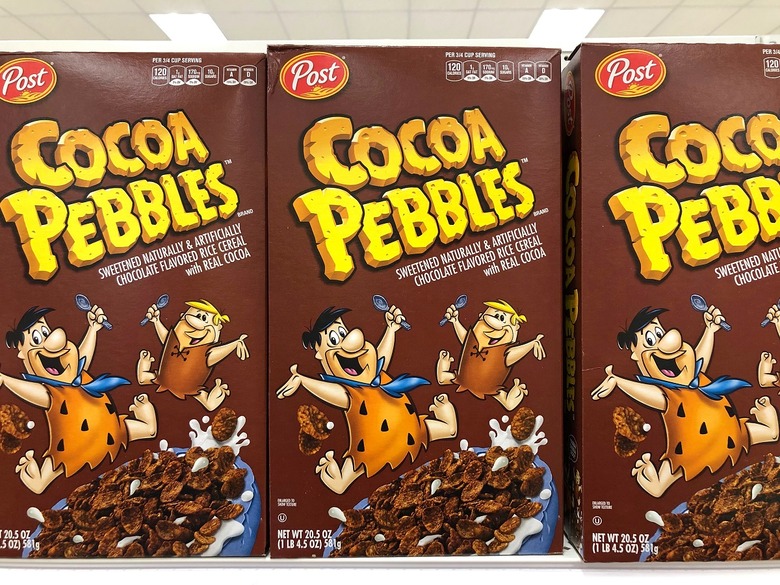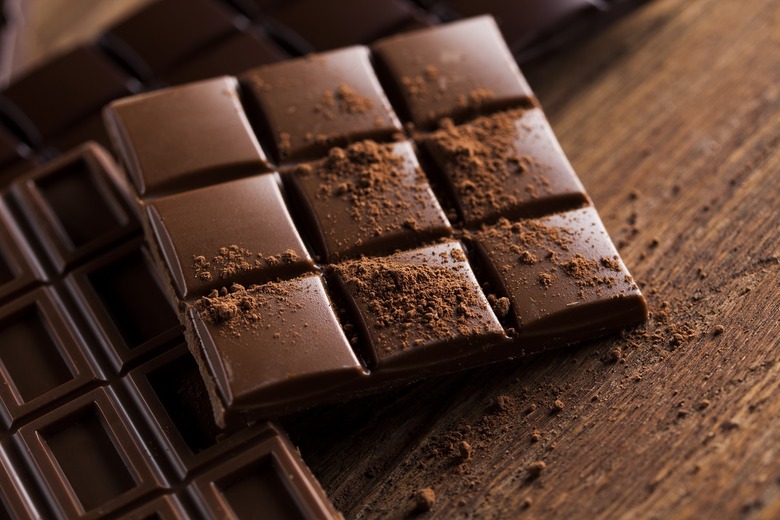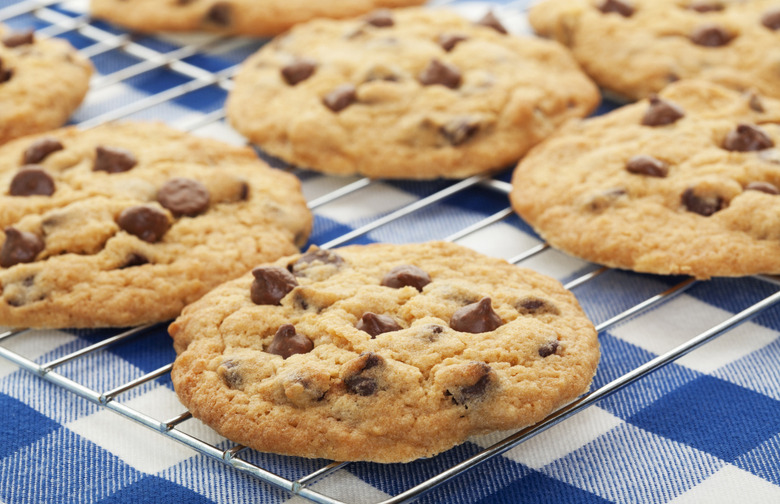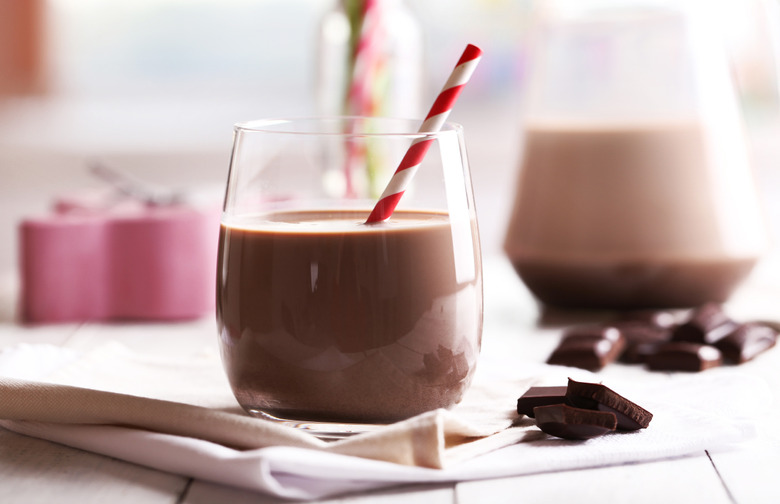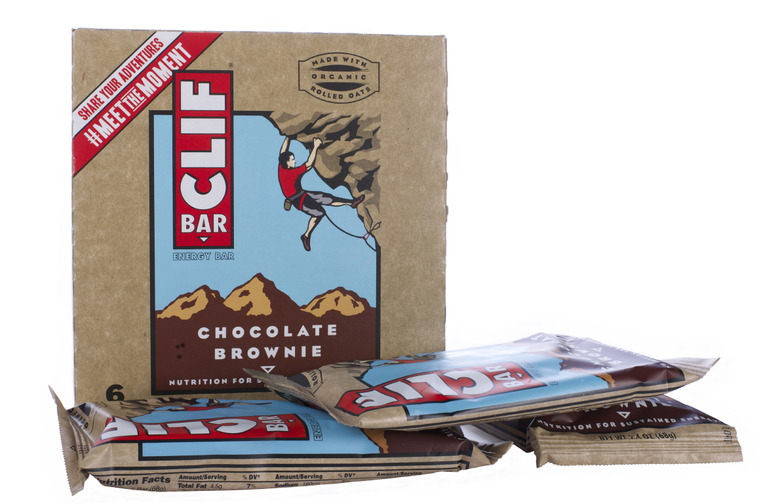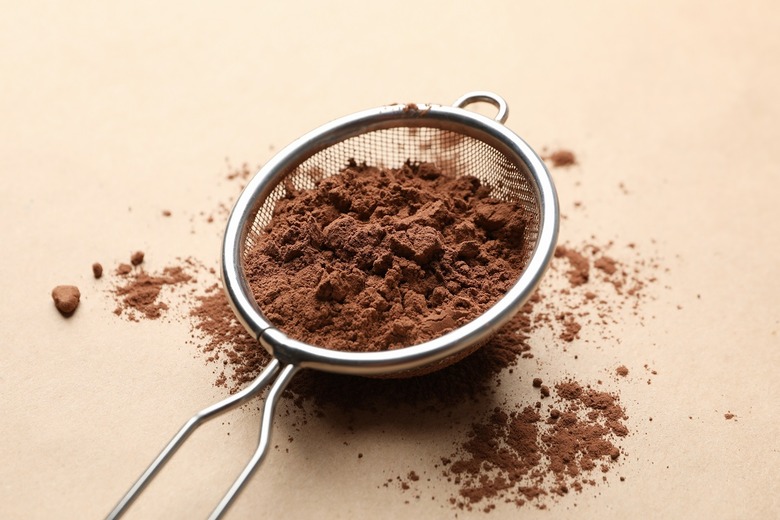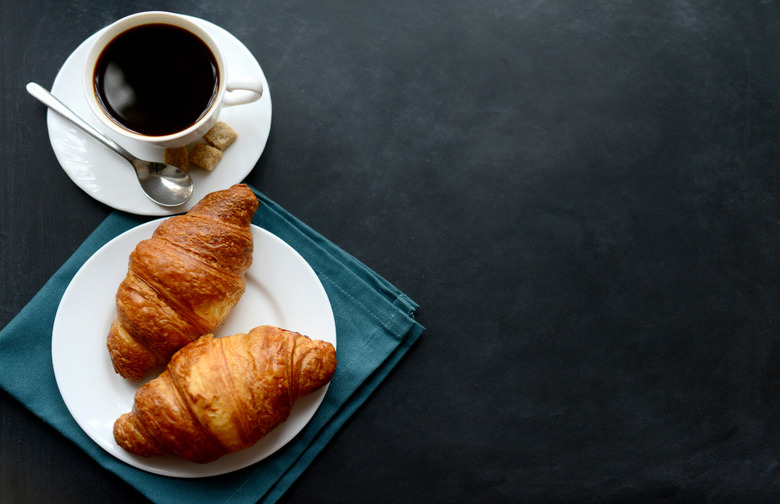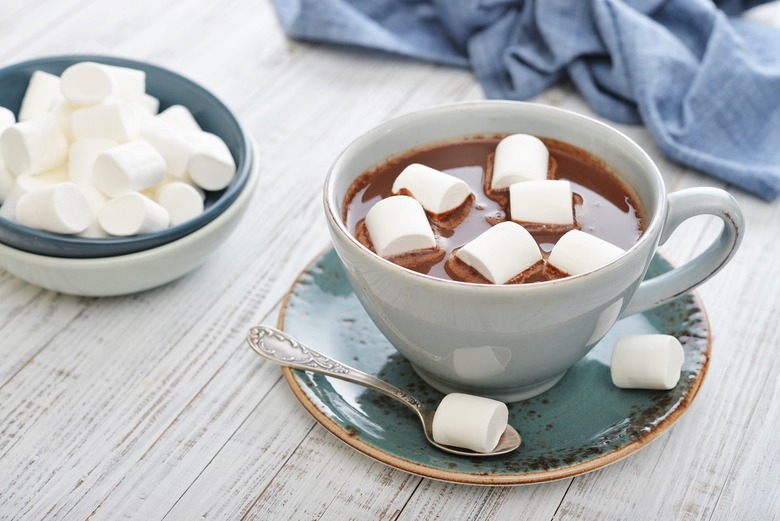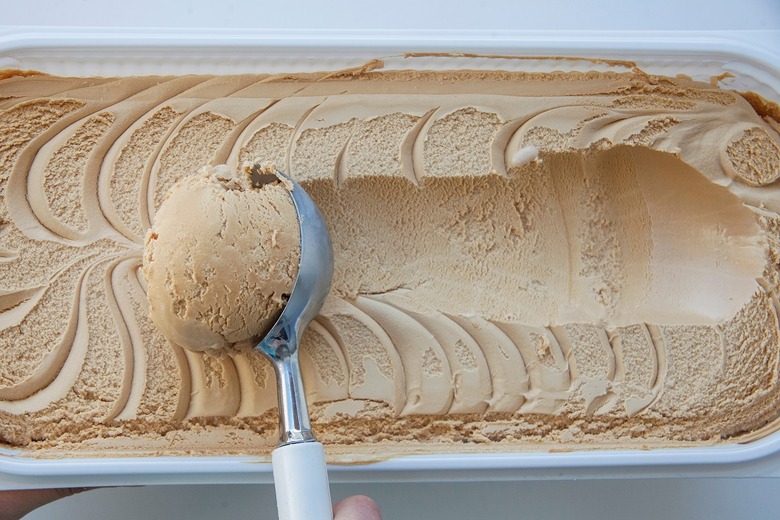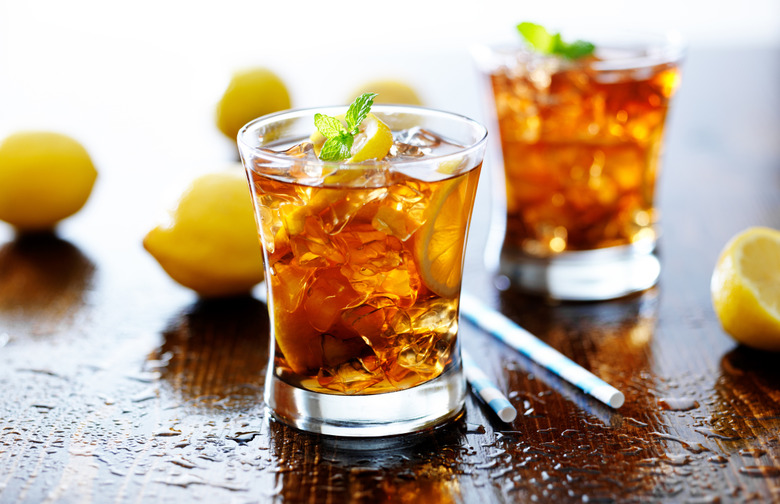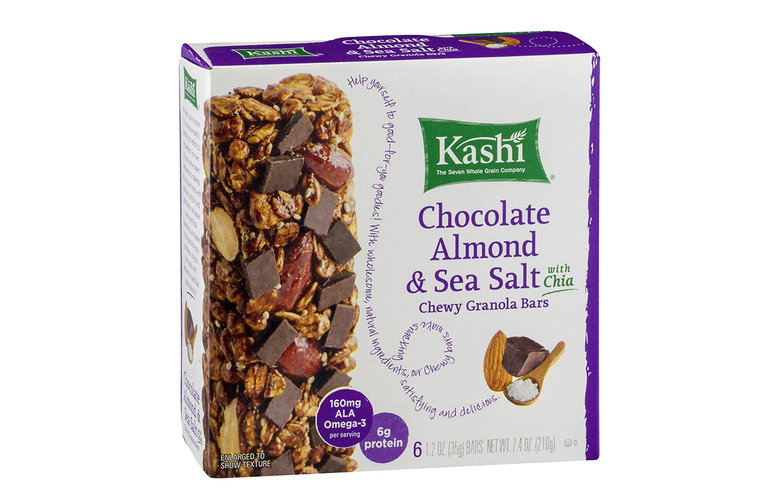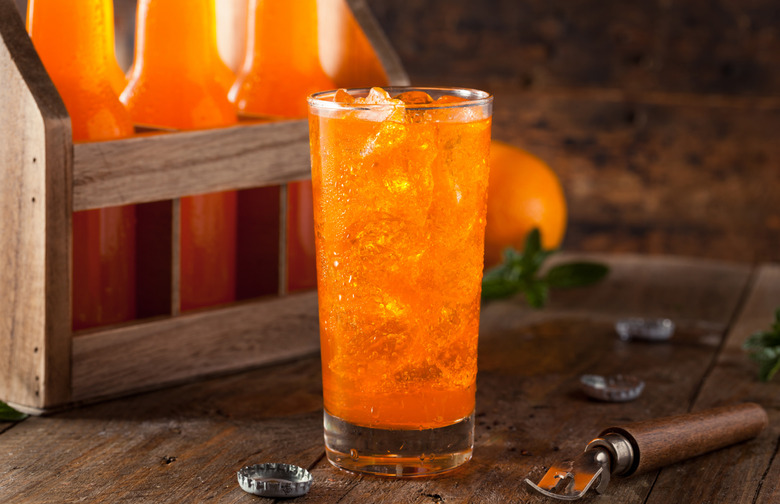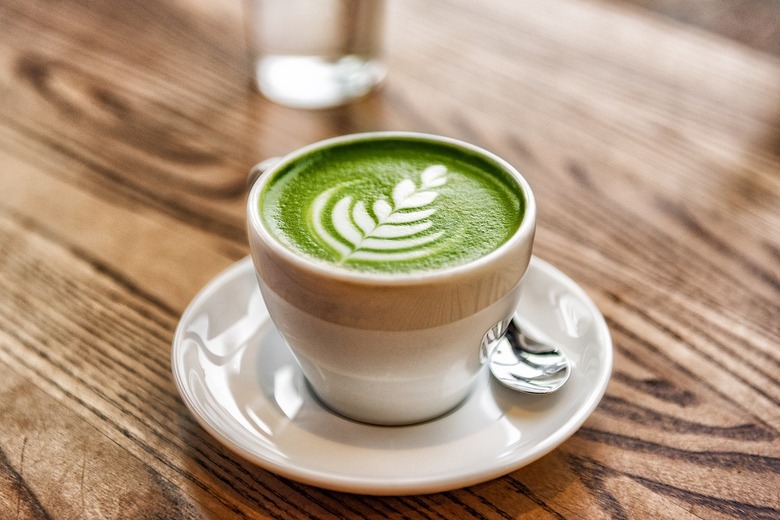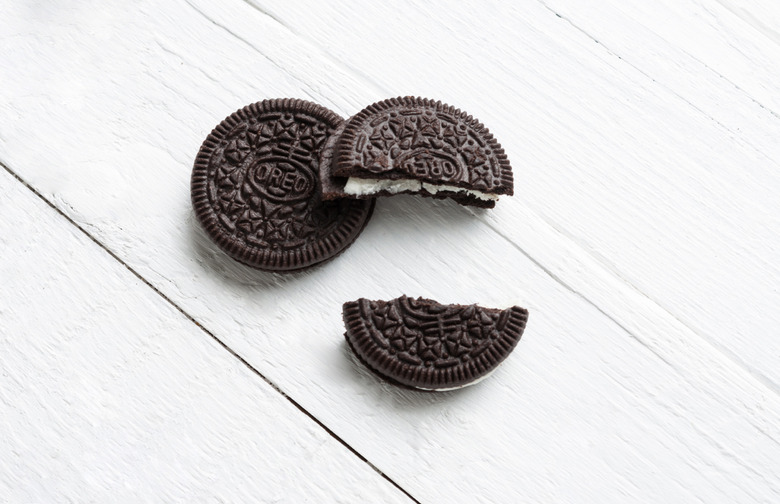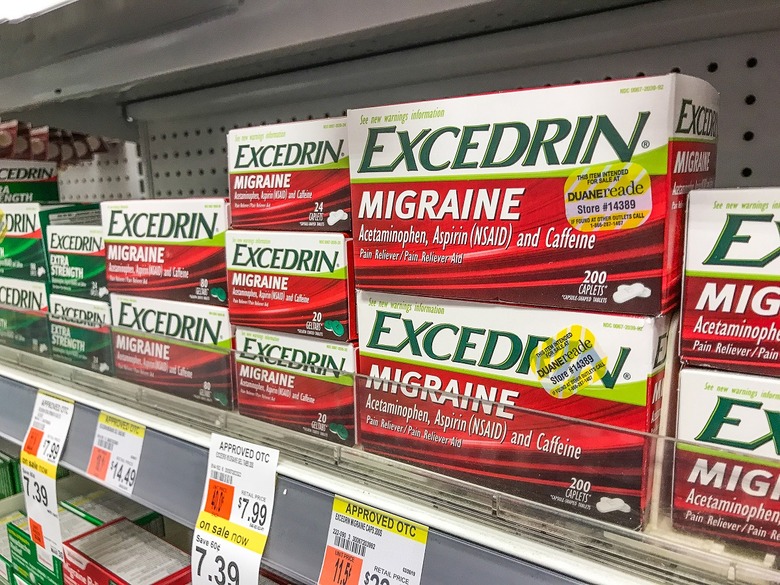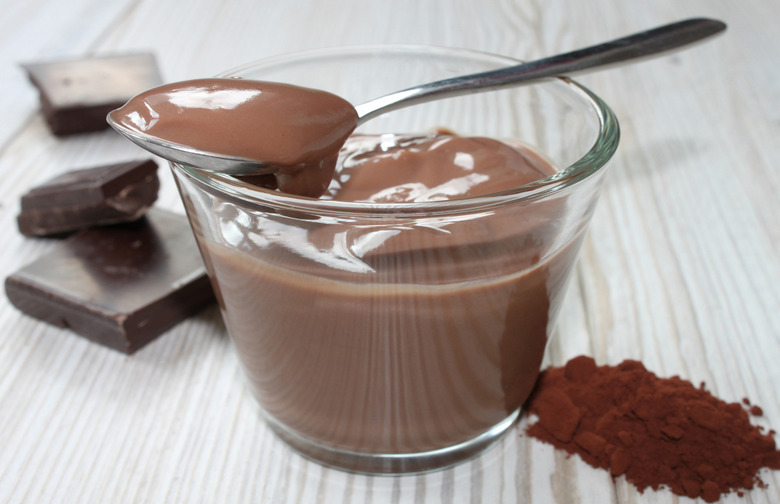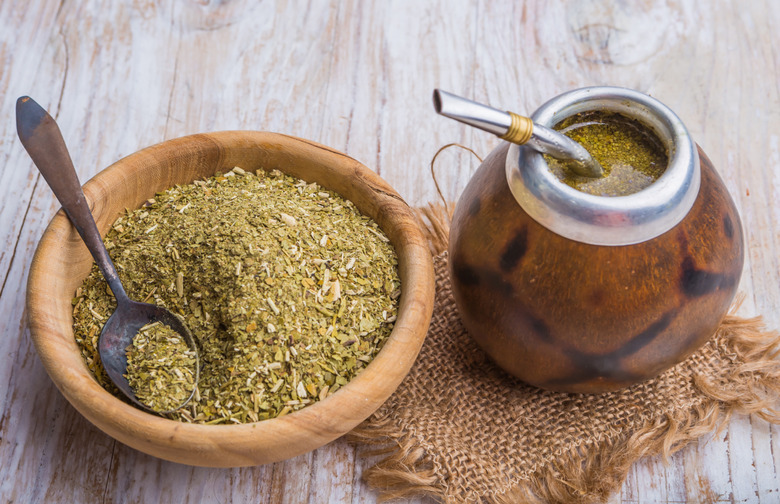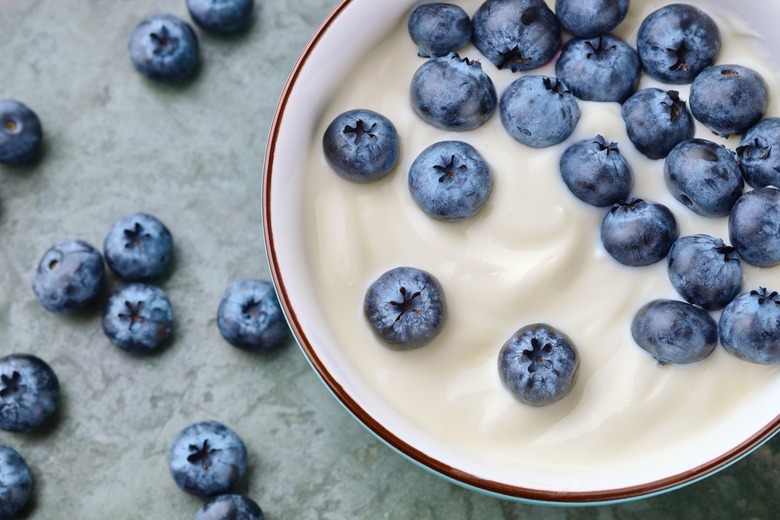Foods And Drinks You Didn't Know Have Caffeine
When you're trying to wake up in the morning, you might turn to different kinds of coffee and espresso drinks, tea or an energy drink for caffeine. Or, if you have an intolerance, you might avoid those things altogether. In that case, these aren't the only items you need to scratch off your grocery list. A handful of unsuspecting foods and drinks have the ability to give you the jitters, though many contain less caffeine than your standard cup of joe, which has about 95 milligrams per 8 ounces.
Cereal
Between your bowl of breakfast cereal and cup of coffee before work, you might be getting more caffeine than you bargained for. It's pretty insubstantial, but Cocoa Pebbles has 1 milligram of caffeine per 3/4 cup.
Chocolate
Dark chocolate is touted for many health benefits, but it also has 12 milligrams of caffeine in 1 ounce. A whole bar (or 5.71 ounces) contains about 70 milligrams.
Chocolate chip cookies
As an added perk to one of America's sweetest desserts, the caffeine content in chocolate chip cookies is mostly derived from the chocolate added to them. One cup of milk chocolate chips contains about 33.6 milligrams of caffeine, so the little amount that's in your cookie is small potatoes.
Chocolate milk
If you're worried about an energy spike from your glass of chocolate milk, think again. One cup contains just 2.5 milligrams of caffeine. On the contrary, one 14-ounce serving of ready-to-drink Nesquik chocolate milk has 37 grams of sugar, which is more than the recommended daily intake for men and women.
CLIF bars
Any CLIF bar that has chocolate in it contains trace amounts of caffeine, but five pack a real punch. Vanilla Almond Latte, Caramel Macchiato and Dark Chocolate Mocha, all part of the brand's coffee collection, have 60 to 70 milligrams of caffeine each. Cool Mint Chocolate contains 49 milligrams of caffeine and Peanut Toffee Buzz has 44 milligrams.
Cocoa powder
If you're into healthy baking, keep in mind that unsweetened cocoa powder adds more than just a chocolate taste to your cookies. One tablespoon contains 12.4 milligrams of caffeine, which is what you'd find in a sip of coffee.
Decaf coffee
It's a common misconception that decaf coffee is completely devoid of caffeine. A 2006 study found between 8 and 14 milligrams of caffeine in almost every decaf cup. The only coffee that passed the test? Instant decaffeinated Folgers Coffee Crystals, which contained 0 milligrams of caffeine.
Hot chocolate
The amount of caffeine found in hot chocolate varies by brand, but if you get it in-store at Starbucks, one 16-ounce serving has 25 milligrams of caffeine. The same size at Dunkin' has just 6 milligrams of caffeine. If you were to make your own at home, brands like Nestle claim they're 99.9% caffeine free. The packaging doesn't specify the exact amount of caffeine a cup of cocoa contains, but according to the advertised percentage, it's insignificant.
Ice cream
Coffee-flavored ice cream from your favorite ice cream stand is a real treat, but did you know that it contains actual coffee? A 4-ounce serving of Haagen-Dazs coffee-flavored ice cream has 29 milligrams of caffeine — but let's be honest: who eats that little?
Iced tea
Some teas help settle an upset stomach. Others give you the energy you need to make it through an afternoon slump. Lemon Snapple contains 37 milligrams of caffeine and lemon Gold Peak has 34 milligrams.
Kashi granola bars
A good rule of thumb is to look out for caffeine in anything sugary or chocolatey, and Kashi granola bars are a perfect example. Kashi's Dark Mocha Almond contains 9 milligrams of caffeine from chocolate and coffee extract. Other granola bars containing chocolate will also have trace amounts of caffeine. Just make sure you check the label because granola bars are among the so-called "healthy" foods that aren't all that good for you.
Kombucha
Certain brands of kombucha use caffeinated tea in their blend. For example, Health-Ade kombucha contains anywhere between 8 to 15 milligrams of caffeine per serving depending on the flavor, and GT's Living Foods has 4 to 8 milligrams of caffeine per 8-ounce serving.
Non-cola soft drinks
Many people are aware that there's caffeine in cola, especially diet cola, but it's in other sodas too. Mountain Dew (diet and regular) contains 91 milligrams of caffeine per 20-ounce serving. Surge has 69 milligrams per 16 ounces, Dr. Pepper has 28 milligrams per 8 ounces and Sunkist orange soda has 31 milligrams per 20 ounces.
Matcha
Considering matcha is derived from green tea leaves, it has almost as much caffeine as coffee. One 8-ounce serving of prepared matcha contains about 70 milligrams. Many matcha drinkers report feeling more refreshed and energized after switching to matcha than they did previously with coffee — so if you're looking to quit, this could be your answer.
Oreos
Incredibly, caffeine somehow snuck its way into Oreos, a classic store-bought cookie — barely, though. One traditional Oreo contains 1.3 milligrams of caffeine.
Pain relievers
Caffeine is a common ingredient in many prescription and over-the-counter pain relievers. It allows the body to absorb medications quicker and makes them 40% more effective in providing relief for headaches and other medical symptoms. Some common brands that contain caffeine include Excedrin Migraine (65 milligrams), Midol Menstrual Maximum Strength Caplets (60 milligrams) and Bayer Back & Body (32.5 milligrams).
Pudding
You guessed it: Chocolate is the culprit when it comes to the secret caffeine supply in pudding. Many ready-to-eat cups contain a highly insignificant 2.16 milligrams of caffeine per 4 ounces, though the amount may vary by brand. It's safe to say you can eat this childhood favorite dessert without bouncing off the walls.
Yerba tea
Yerba mate is an antioxidant-packed herbal tea that packs a real punch. One 8-ounce cup contains 85 milligrams of caffeine, which is on par with some of your favorite coffee drinks.
Yogurt
An increasingly popular flavor with breakfast lovers, coffee yogurt is a great protein-filled breakfast. With just 2.56 milligrams of caffeine per 5.3 ounces, Chobani's Coffee & Cream blended yogurt is nothing to write home about, but Dannon's low-fat coffee yogurt has 30 milligrams per 6 ounces. To help decide whether it's a healthy part of your diet, check out these things you didn't know caffeine does to your body.
More from The Daily Meal:
The Healthiest and Unhealthiest Creamers for Your Coffee
10 Signs You Should Cut Back on Coffee
The Best Coffee Shop in Every State Gallery
11 Dishes You Didn't Know Were Invented in America
Things You Didn't Know About 15 of the Most Popular Soda Brands
